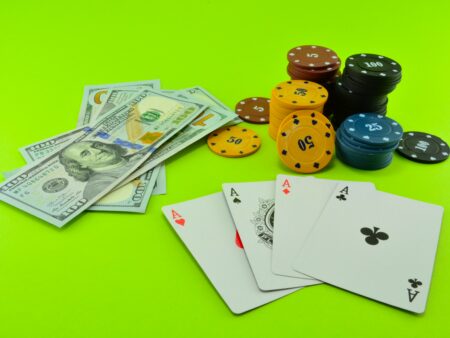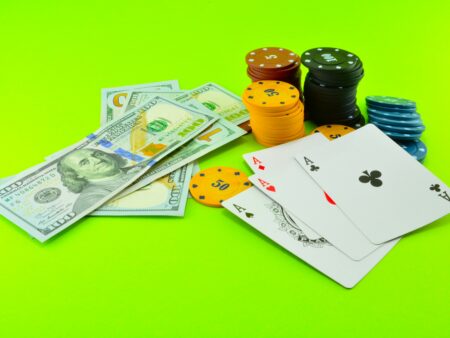New to poker? Learn the essential poker terminology every beginner should know. Get familiar with poker jargon and impress your fellow players with your knowledge.
Essential Poker Terminology: A Glossary for Beginners
Are you new to the world of poker? Do all the unfamiliar terms and jargon make you feel like you’re in a foreign land? Don’t worry, we’ve got you covered. In this article, we’ll take you through a comprehensive glossary of essential poker terminology that every beginner should know. By familiarizing yourself with these terms, you’ll not only be able to understand and participate in poker games with confidence but also impress your fellow players with your knowledge.
Blinds
The blinds are forced bets that two players sitting to the left of the dealer must make before the cards are dealt. The player to the immediate left of the dealer posts the small blind, and the player to their left posts the big blind. The blinds ensure that there is always a pot to play for.
Community Cards
Also known as board cards or shared cards, community cards are the face-up cards in the center of the poker table that are shared by all players. In games like Texas Hold’em, players use these community cards in combination with their hole cards (personal cards) to make the best possible hand.
Flush
A flush is a poker hand consisting of five cards of the same suit. The cards do not need to be in sequence. For example, if you have the Ace, King, Queen, Jack, and 10 of hearts, you have a flush. The ranking of flushes is determined by the highest card in the hand.
Check
When a player chooses not to bet and passes the action to the next player, it is called a check. Checking is only possible when no bets have been made in the current betting round. If a bet has been made, players must either call, raise, or fold.
Flop
In games like Texas Hold’em and Omaha, the flop is the second betting round. It refers to the first three community cards that are dealt face-up on the poker table. These cards are shared by all players and can be used in combination with the players’ hole cards.
Full House
A full house is a poker hand consisting of three cards of the same rank and two cards of another rank. For example, if you have three Aces and two Kings, you have a full house. The ranking of full houses is determined by the three cards of the same rank.
All-In
When a player bets all of their remaining chips in a single bet, they are going all-in. If another player wants to continue betting, they can only win the portion of the pot that they can match, called the main pot. Any further bets go into a separate side pot, which the all-in player cannot win.
Turn
The turn is the fourth community card in games like Texas Hold’em and Omaha. It is dealt face-up and can be used by all players in combination with their hole cards to form the best possible hand.
River
The river is the fifth and final community card in games like Texas Hold’em and Omaha. Like the turn, it is dealt face-up and is available to all players. Once all betting is complete, players reveal their hole cards and the player with the best hand wins the pot.
Raise
A raise is when a player increases the previous bet made by another player. This forces the other players to match the new bet or fold. Raising is a strategic move that allows players to potentially win more money or force opponents to fold.
Conclusion
Now that you’re armed with the knowledge of essential poker terminology, you can enter the world of poker games with confidence. Remember, practice makes perfect, so make sure to apply these terms in real gameplay. As you gain experience, you’ll come across even more poker jargon and terminology, but this glossary serves as a solid foundation for any beginner. So, get ready to join the poker table and let the games begin!










